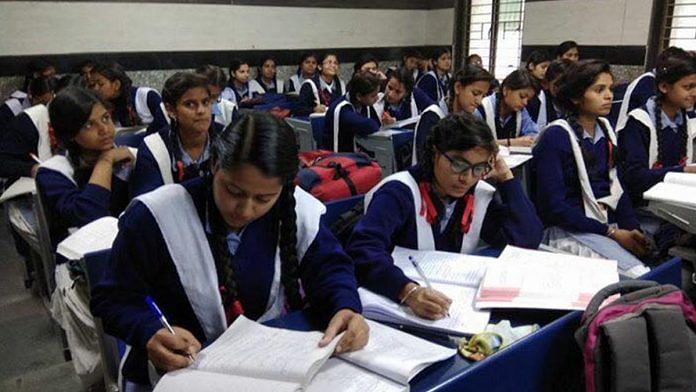A few months back in December, I made an important decision that I knew would get me quite a lot of flak. I had been putting off this decision for many months, but it was time.
I told my family that I was leaving my JEE coaching. It was such a big decision because everyone including my peers, teachers, and neighbours expected me to pursue an IIT education after I got a decent percentage in Class 10, and I was going to let them down.
Years of conditioning and last-minute panic about job security led me to take the impulsive decision of enrolling for IIT coaching. After seven months of bargaining and putting in my best efforts, and still feeling like I had no heart in physics or chemistry, I finally left the coaching class. But not without an excruciating fight with the management regarding the refund of my fees.
The hardest part about leaving JEE coaching was not physically leaving but the mental battle of identity, self-worth and my own ignorance. I was always interested in humanities and politics but never actually thought I could pursue this. Every time I felt like I should leave throughout those seven months, the biggest question was — what’s the alternative?
Why is humanities education suffering in India?
This question sheds light on the heart of the problem in specialised education in humanities. There are over a thousand engineering colleges in India right now. Mathematics, technology and science education are at their peak with schools encouraging students to study maths harder. There are also exponentially more colleges of science and technology than humanities.
As a result, a massive crop of engineers and doctors is ready every year.
However, the study of humanities has been structurally taken out of the scholastic vernacular. From Class 6, there has always been an acute shortage of teachers in literature and social science subjects.
Teachers who are trained in humanities subjects are transferred to primary classes where their skills are not used. Humanities classes are 35 per cent shorter than math or science classes in school. There are plenty of counsellors for science colleges, but none for humanities.
Over 40 per cent schools do not even offer an Arts stream. The story does not end at middle or high school. This trend continues in higher education as well — evident by the sub-par humanities education in private and even government colleges.
Colleges like St Stephen’s or others in Delhi University have cut-offs as high as 99 per cent, but even after students meet those unrealistic standards, they only learn from UPSC coaching in front of the university as there are only a few tenured professors hired.
Misconception about humanities
There are no real incentives for reputed researchers or intellectuals to join these colleges to teach or study. So when my peers were discouraging me from taking humanities, they were right about the futility of an Arts education. Right?
Not exactly.
While the education system and the policy climate around indicate that a humanities course is worthless, big multinational companies express their need for professionals trained in humanities time and time again through their recruitment patterns.
Moreover, institutes like the IITs, which started as an exclusive technological institute, also began establishing humanities and management departments out of a sheer need for these subjects.
So it is not like there isn’t a need for a humanities education, other than for UPSC. Even Google needs sociologists and psychologists for their programmes.
My understanding of the job market completely changed when I saw how companies needed diversity in their workforce. They could teach a bunch of engineers coding in six months but cannot teach the entirety of human psychology or design in those six months.
So when we talk about an application-based study, we not only mean teaching kids how to make websites. It also means teaching them how we understand the world around us.
Need for change
Seven months after leaving coaching, I still feel alien hanging around my friends and their parents, who think I am a terrible influence on their child.
There are thousands of children like me all over the country who want to study these subjects and want a good education in these fields. But the truth of the matter is that it is hard to find.
It’s not like enough students don’t want to study these subjects, rather humanities education needs an institutional change.
A single private college or individuals don’t have the vision nor the resources to change the status quo. State intervention is necessary to systematically provide teachers and schools the space to expand time for lessons and establish government colleges that rely on meritocracy not only for admission but also the curriculum.
The state needs to create an environment for quality education in these fields. Only then will private universities emerge. Without the systematic study of politics, there won’t be critical thinking about the political structure but only political activism and similarly without strong institutions, there won’t be any intellectual courage in professionals, only a workforce full of trained conformists.
Manya Gupta is a student of Kendriya Vidyalaya IIT Powai, Mumbai



